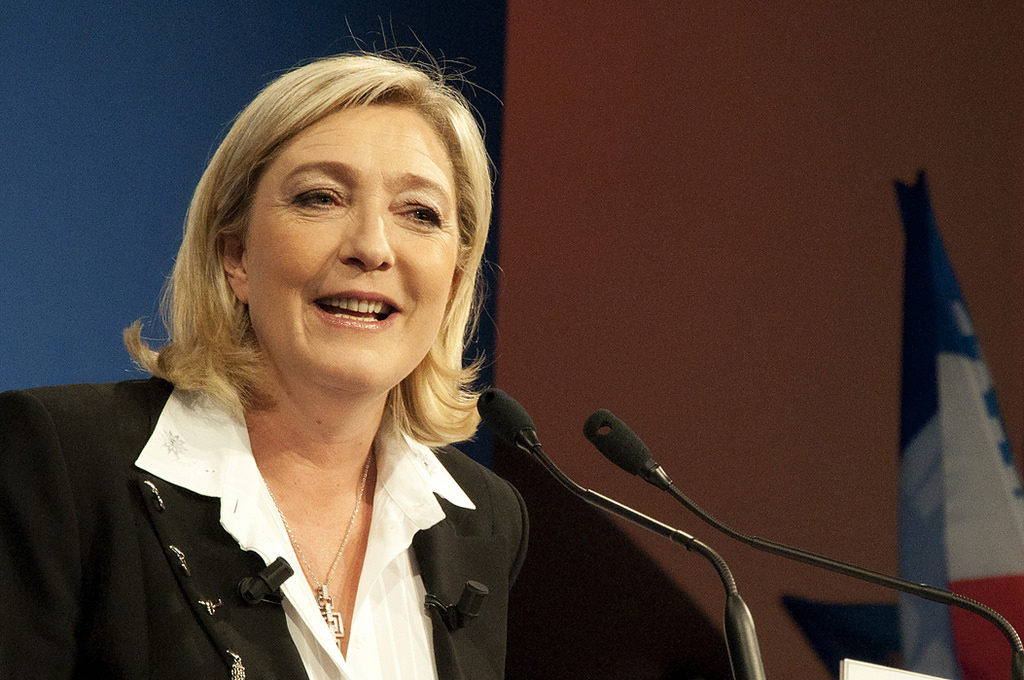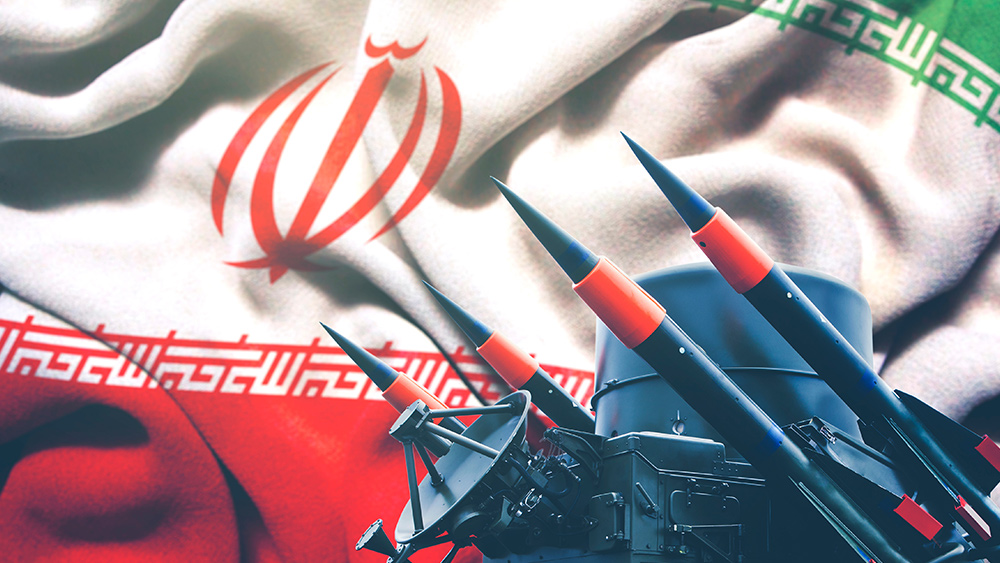Pentagon memo suggests U.S. will not defend Europe from Russian aggression, prioritizing China and homeland security
By willowt // 2025-04-01
Tweet
Share
Copy

- A leaked Pentagon memo reveals a strategic shift, with the U.S. focusing on deterring China in the Indo-Pacific and homeland security, reducing military commitments to Europe in case of Russian aggression.
- While maintaining nuclear deterrence against Russia, the U.S. will only deploy non-essential forces to Europe, urging NATO allies to increase their own defense contributions.
- The memo aligns with President Trump’s emphasis on threats closer to home, while Defense Secretary Hegseth faces scrutiny over leaked Signal messages discussing war plans.
- European leaders, stunned by U.S. wavering on NATO commitments, are pushing for greater military independence, with nations like Denmark and the U.K. boosting defense spending.
- The U.S. pivot raises questions about NATO’s viability, prompting calls for restructuring and stronger European defense capabilities to counter potential Russian threats.
The memo's key points
The memo, leaked to the Washington Post, outlines a strategic shift in U.S. defense priorities. Hegseth's document emphasizes the need to focus on countering China's potential seizure of Taiwan and bolstering homeland defense. This shift is underscored by a reduction in the U.S.'s willingness to provide significant military support to Europe in the event of a Russian attack. According to the memo, the U.S. will continue to provide nuclear deterrence against Russia but will only commit forces that are not essential for homeland security or missions related to China. The guidance also calls for increased defense contributions from European nations, stating that this will ensure NATO can "reliably deter or defeat Russian aggression even if deterrence fails and the United States is already engaged in, or must withhold forces to deter, a primary conflict in another region."Hegseth's controversial stance
The memo aligns with President Trump's global security concerns, particularly his emphasis on threats from the "near abroad" and the need to defend American interests in the Western Hemisphere. Trump's recent declaration about Greenland has heightened tensions with Denmark, a NATO ally responsible for the autonomous island's defense and foreign affairs. Hegseth's stance on the memo has been further complicated by recent scandals, including the Signal-gate text scandal. Jeffrey Goldberg, editor-in-chief of The Atlantic, accused Hegseth of lying about sharing war plans in a Signal group chat. Hegseth had denied discussing war plans, but Goldberg's screenshots suggest otherwise, showing Hegseth detailing the day's events.European reactions and NATO's future
European leaders have been left stunned by the open rapprochement between President Trump and Russian President Vladimir Putin, as well as the subtle hints that the U.S. may abandon its obligation to defend European allies. The alliance's famous Article 5, which holds that NATO members will come to the defense of an ally under attack, has been a cornerstone of European security since World War II. However, recent events have raised doubts about the U.S.'s commitment to this principle. Friedrich Merz, the incoming German chancellor, has outlined plans to achieve independence from the U.S. in terms of security. He emphasized the need to strengthen Europe as quickly as possible to establish an independent European defense capability. Merz's comments reflect a growing sentiment among European leaders that the transatlantic alliance may need to be restructured to ensure long-term security.European efforts to enhance defense
In response to the U.S.'s shifting priorities, several European nations have announced plans to increase their defense spending. Denmark has already announced a major increase in defense spending, and the U.K. has followed suit, cutting foreign aid to fund an extra £13 billion annually. These moves are seen as a necessary step to mitigate the risks posed by a potentially less committed U.S. ally. NATO Secretary General Mark Rutte has attempted to reassure European allies, stating that the transatlantic relationship remains the bedrock of the alliance. However, Rutte also emphasized the need for European nations to increase their defense contributions. The invocation of Article 5 has only occurred once in NATO's history, following the September 11 attacks, when the alliance came to the U.S.'s aid in Afghanistan.Redefining America's role
The leaked Pentagon memo and the broader context of President Trump's policies have sparked a significant reevaluation of NATO's future and the security of its European members. As the U.S. shifts its focus to the Indo-Pacific and homeland security, European nations are taking steps to enhance their defense capabilities and potentially restructure the alliance. The coming months will be crucial in determining whether NATO can adapt to these new challenges and maintain its role as a bulwark against aggression. Sources include: TheMirror.com BBC.com TheGuardian.comTweet
Share
Copy
Tagged Under:
Russia NATO World War III China national security Trump Europe White House big government national defense truth chaos WWIII progress Hegseth homeland defense defense priorities
You Might Also Like
By Lance D Johnson // Share
The SilverSqueeze2.0 movement: A rally of hope or another false dawn?
By Willow Tohi // Share
Screen time before bed worsens insomnia, cuts sleep by 24 minutes per hour, study finds
By Cassie B. // Share
France’s Marine Le Pen sentenced to prison and banned from office amid political firestorm
By Kevin Hughes // Share
“Ready… Set… Bolt!”: Dmitry Orlov’s provocative vision of collapse and renewal
By Belle Carter // Share
Iranian MP urges nuclear weapons development, citing North Korea as model
By Cassie B. // Share
Recent News
The SilverSqueeze2.0 movement: A rally of hope or another false dawn?
By willowt // Share
Google’s Android goes dark: A major retreat from open source transparency
By willowt // Share








